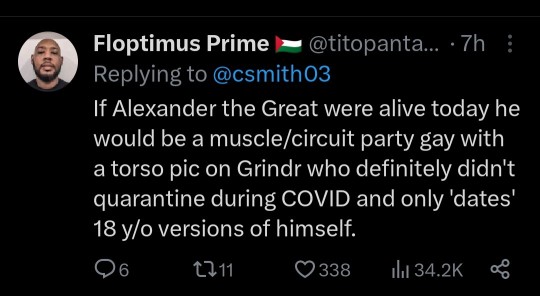#Alexander the Great
Text
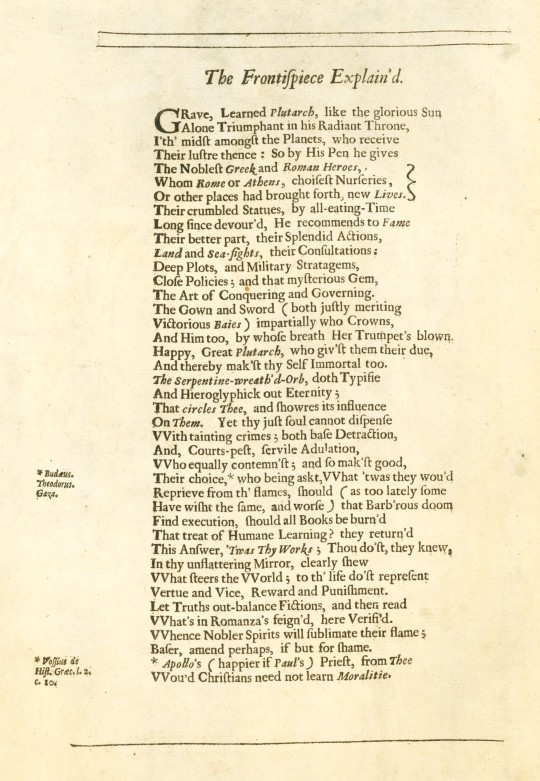
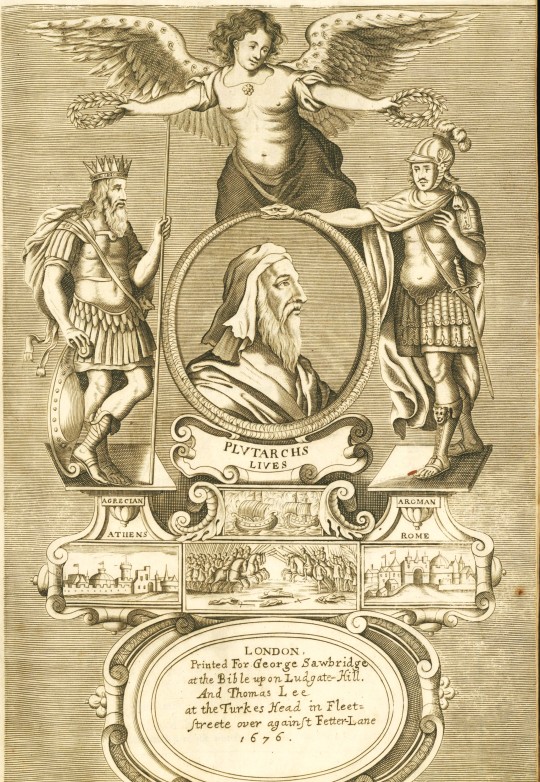

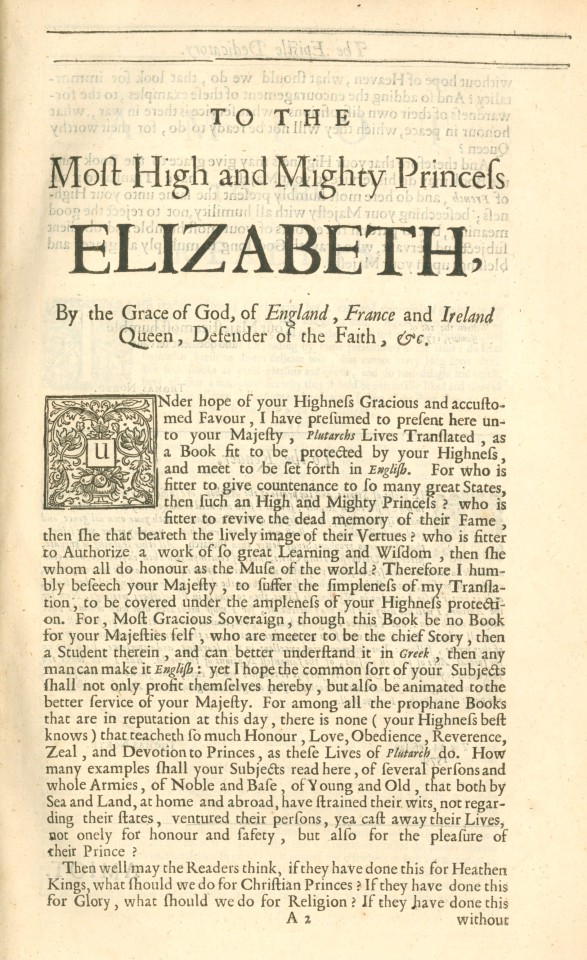

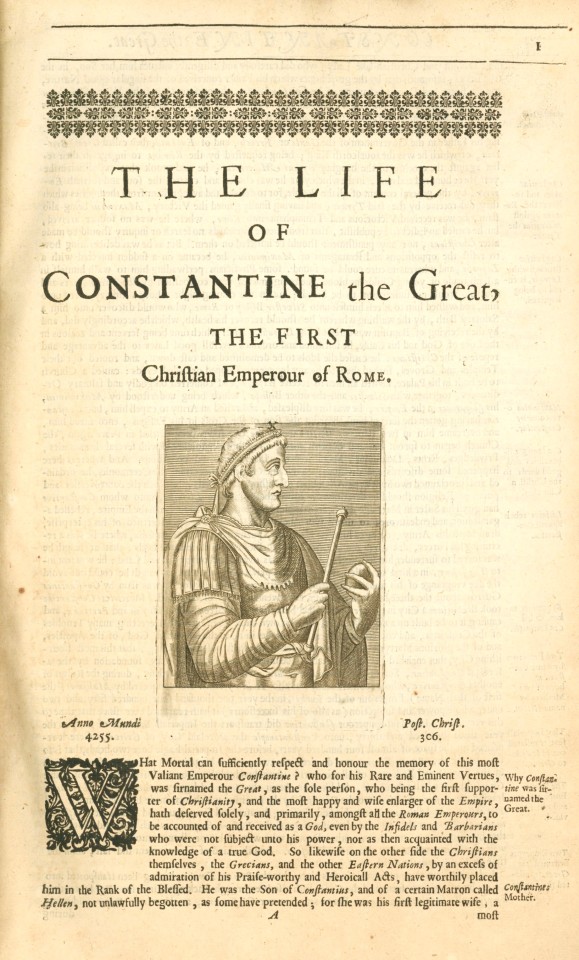

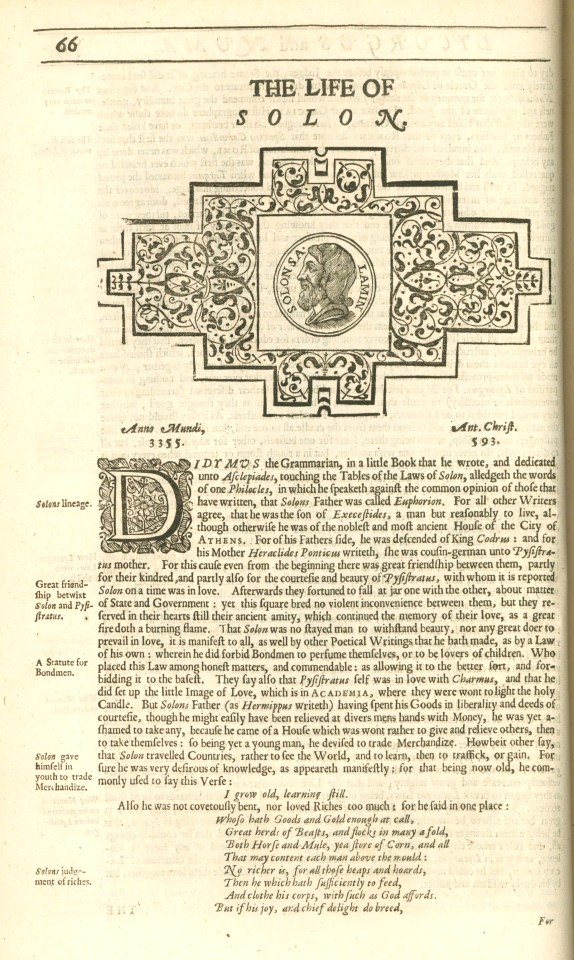
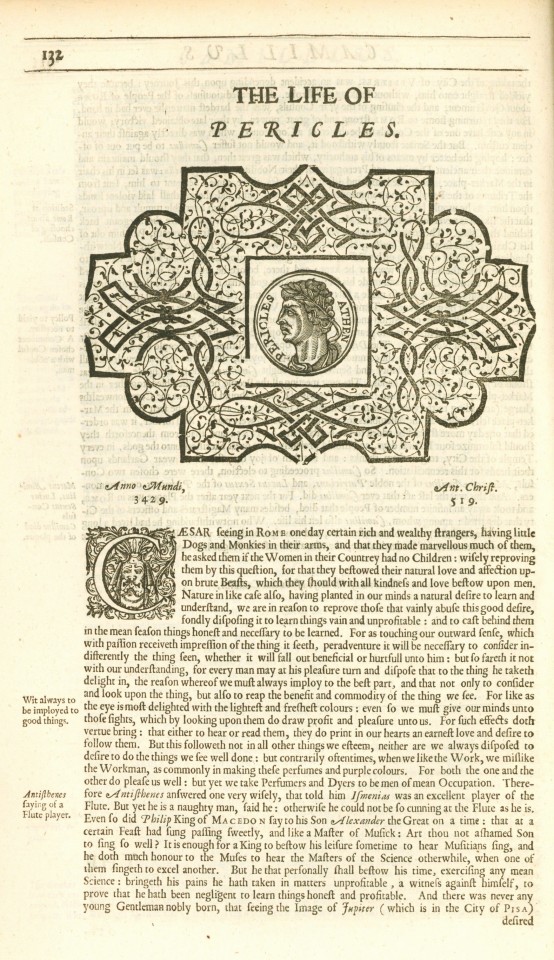
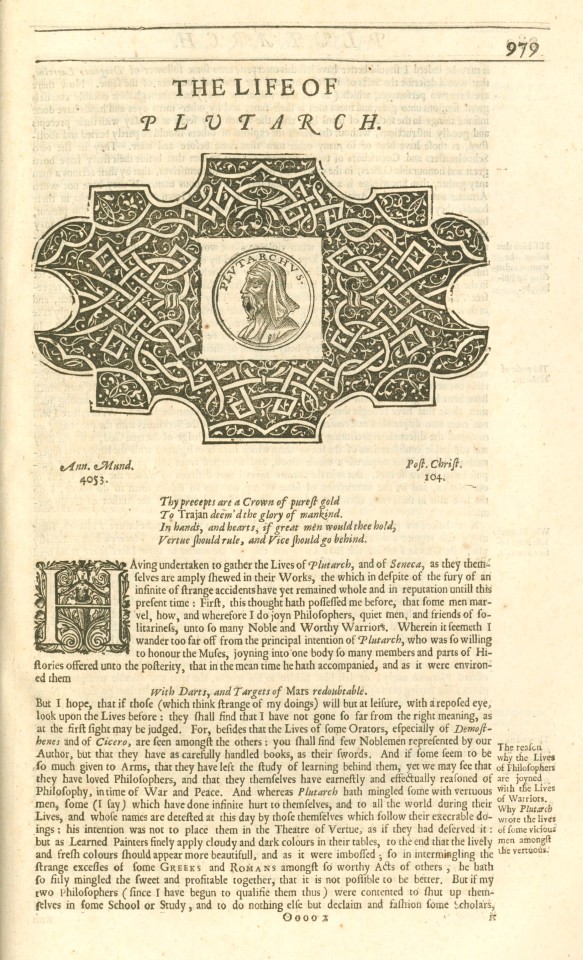
Classic Profiles
This is a 1676 edition of The Lives of the Noble Grecians and Romans, compared together by the 1st-century BCE Greek philosopher and historian Plutarch of Chaeronea, printed by the printer to the University of Cambridge John Hayes for the bookseller George Sawbridge. Originally written in Greek, Plutarch's Lives appeared in print for the first time as a Latin translation in 1470, and this English translation by Sir Thomas North was first published in 1579 from a French translation by James Amiot (Jacques Amyot). The text is a collection biographies of famous Greeks and Romans, including Alexander the Great, Pericles, Tiberius Gracchus, and Cicero. These figures left an indelible mark on history, their lives and achievements shaping the world as we know it.
Sir Thomas North (1535 – c. 1604) was an English translator and lawyer significantly contributing to English literature. His translation of Plutarch's Lives served as the primary source text for William Shakespeare's Roman plays, a testament to his work's enduring influence. This translation is regarded as one of the earliest examples of exceptional English prose. It was followed by another edition in 1595, which included updated biographies. A third edition of North's Plutarch was published in 1603, including even more translated Parallel Lives and a supplement of other biographies.
Jacques Amyot (1513-1593), a French scholar, writer, and translator, made substantial contributions to the field of translation and literature. His work on the translation of Plutarch's Lives (1559-1565) was instrumental in shaping the literary landscape of his time and laid the foundation for future translations and interpretations of Plutarch's work.
The first edition of this book was dedicated to Queen Elizabeth I. This dedication reflects the book's significance and provides a glimpse into the political and cultural landscape of the time, adding another layer of depth to the reader's understanding. Plutarch’s Lives helped shape the understanding of the classical Greek democracies and oligarchies of the Roman Republic and the role attributed to their founders—among them the legendary Lycurgus of Sparta and the Athenian lawgiver Solon.
-Melissa, Special Collections Classics Intern
View other Classics posts
#classics#greek posts#greece#roman#cambridge#plutarch#ancient greece#roman republic#alexander the great#lycurgus#solon#queen elizabeth i of england#biography#sappho#constantine the great#pericles#Thomas North#James Amiot#Jacques Amyot#John Hayes#university of cambridge
94 notes
·
View notes
Text
#Sarah McDaniel#humor#twilight renaissance#13 reasons why#alexander the great#aria montgomery#books and libraries#Shuake#briefs bulge#mustang#grace boor#yixing#radical feminism
125 notes
·
View notes
Text
why is everyone obsessed over romeo and juliet when the holy trinity of gay tragic lovers exits!? like alexander the great, achilles and apollo didn’t lose hephaestion, patroclus and hyacinthus for everyone to forget about them!! like they’re the same but one is a myth, the other is a book, and the one that was real
#alexander the great#hephaestion#alexander x hephaestion#alexander the making of a god#alexander and hephaestion#achilles#patroclus#patrochilles#achilles and patroclus#achilles x patroclus#the illiad#the song of achilles#tsoa#apollo#hyacinth#apollo and hyacinthus#ancient greek#greek mythology#tragic love#history
46 notes
·
View notes
Text
Tell me you know nothing about history without telling me you know nothing about history

#'turned him gay'#newsflash asshole he's been gay (bi rather) the entire time!#alexander the great#history#to clarify this is a reaction to the tweet#I don't know anything about the documentary itself or how accurate it is
48K notes
·
View notes
Text













Besides, you'll be by my side, right? Till the bitter end.
Alexander the Great and Hephaestion in Alexander: The Making of a God (2024)
#alexander the making of a god#alexander the great#hephaestion#dailymengifs#perioddramaedit#perioddramagif#alexander x hephaestion#buck braithwaite#will stevens#mine#historically accurate tbh#this could have been a smaller gifset. but it isnt.#1k
5K notes
·
View notes
Text

#tumblr memes#memes#meme#meme humor#memesdaily#history memes#history humour#history shitposting#alexander the great#queer memes#gay memes#lgbtq memes#funny but true#funny because it's true#dank humor#dank memes#dankest memes#shitpost#funny stuff#funny#funny shit#funny post#funny memes#ha ha funny#funny meme haha#history side of tumblr#lol#lol memes
4K notes
·
View notes
Text




Ptolemy tired of thirdwheeling Alexander and Hephaestion in Episode 1: The Boy King
Alexander: The Making of a God (Netflix, 2024)
#alexander the great#hephaestion#alexander x hephaestion#alexander the making of a god#buck braithwaite#will stevens#perioddramaedit#netflixedit#mygifs*#makingofagod*#tv: alexander the making of a god#pls this was so funny
3K notes
·
View notes
Text

it actually wasn’t netflix who turned alexander the great gay, it was ben willbond in 2009 on hit children’s tv show horrible histories
#i genuinely believe that if horrible histories came out today conservatives would lose their minds#horrible histories#ben willbond#bbc ghosts#alexander the great#mine
2K notes
·
View notes
Text













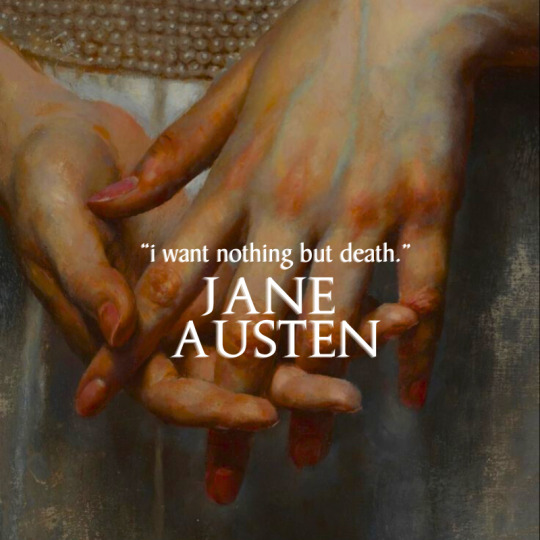




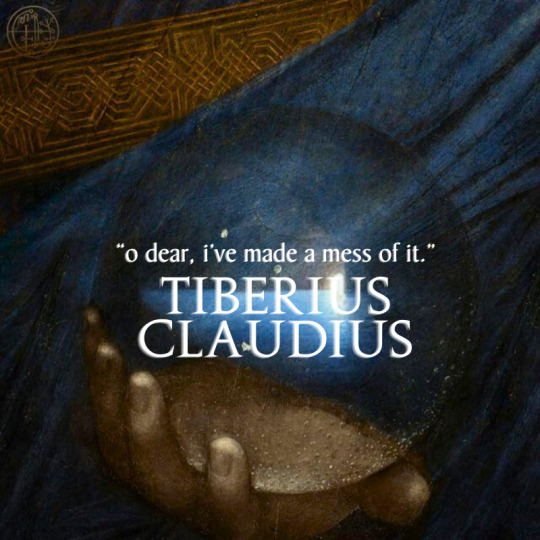

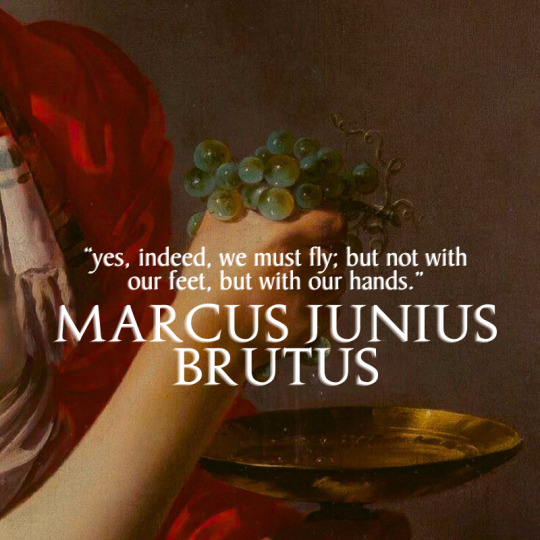


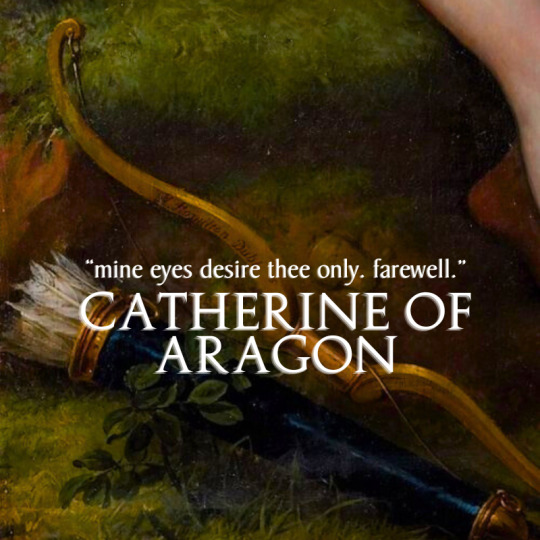






history + last words
#history#art#karl marx#mozart#voltaire#emily dickinson#alexander the great#vincent van gogh#jane austen#ludwig van beethoven#alfred hitchcock#catherine of aragon#leonardo da vinci#historyedit#*mine
3K notes
·
View notes
Text
Homer: I chose to focus on Achilles dragging Hector behind his chariot in my composition of the Siege of Troy as a meditation on the horrors men commit when consumed by grief and rage.
Alexander: At long last I have re-enacted the war crime of my hero Achilles from the poem That Time Achilles Did Some Really Fucked Up Things and Learned Better.
4K notes
·
View notes
Text

Imagine being so dumb the Qanon Shaman is correcting you about misinterpreting history.
1K notes
·
View notes
Text
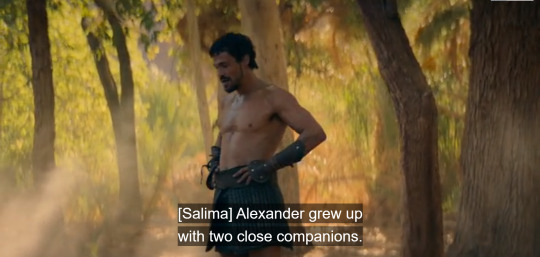



VINDICATION!!
799 notes
·
View notes
Text

851 notes
·
View notes
Note
Dark! Platonic Alexander the Great x illegitimate! Daughter reader?
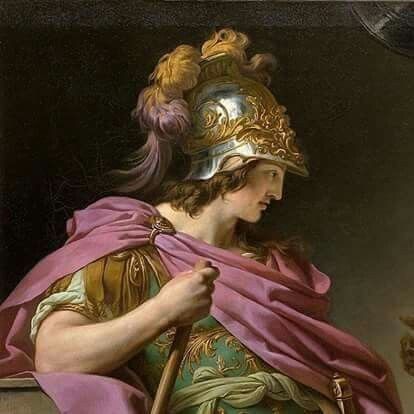
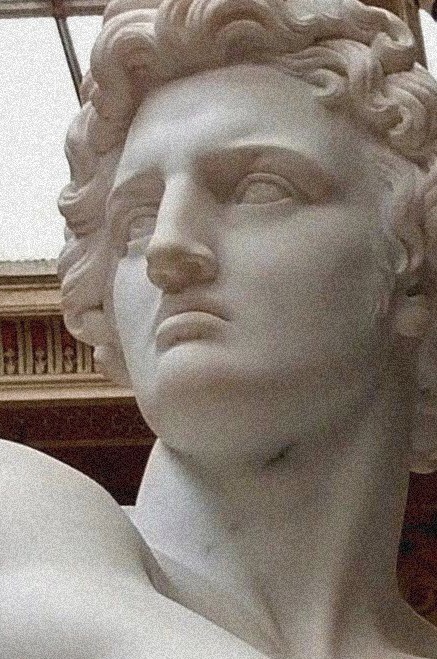


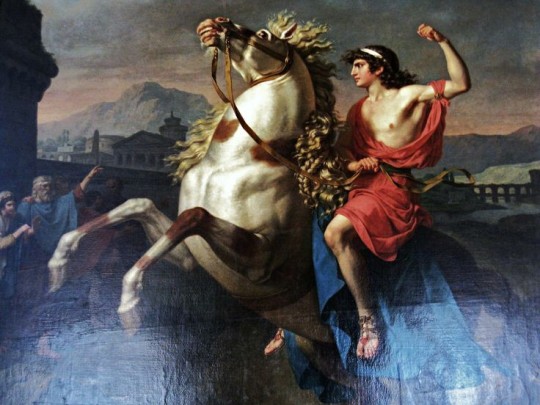
He had you when he was really young, barely fifteen years old.
Even though many men back then had children younger than his age.
Alexander didn't give you up, in fact, he insisted that you stay by his side, not caring for the criticism lashed towards him.
Not only that, but also tried to convince his father to legalizes you.
But his father refused to do so.
However, when King Philip II gets assassinated, and your father becomes king at twenty-one, the first thing he does is claim you as his true-born child.
For the Macedonian Greek king, you were not just a child related to him by blood...
You are the daughter he spends long nights telling about his glorious fights and hunts.
Unlike his father who belittles his achievements, you always seem excited to listen to him.
Also, you have the same interests as him, you love to always learn and improve even as a young child.
Alexander decided to bring you with him on his conquests, even though his mother, Olympias objected to the idea, stating that war is no place for a girl.
But your father insisted that you shall come with him because you are his daughter.
Of course, he kept you protected away from the battle field.
One time, Cleitus, one of the generals, flirted with you during the celebration of one of your father's victories.
Alexander got word of that and killed his friend with his own hands in drunken fury.
As years pass by, your health becomes more frail, and you start to pass out during long journeys.
Alexander appointed the highest physicians to cure you, but they failed to even find out what is making you so weak in the first place.
On your deathbed, you keep mumbling your father's name while Alexander keeps holding your hand, pleading for his gods to save you.
"Father...Father"
"Don't leave your father alone, (Y/n), don't be so cruel" the conqueror choked out the words, with tears falling down his face
But unfortunately, you passed away at the age of seventeen, leaving your father heartbroken and feeling great guilt.
Alexander also died a few months later from typhoid fever.
His last request was that they move your body to his tomb, so he can find you again in the afterlife.
1K notes
·
View notes
Text


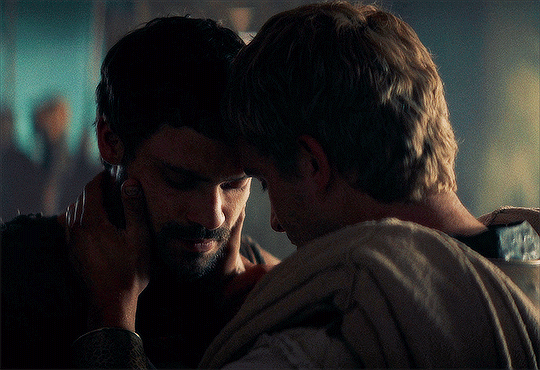


"But the fates of death await us. So we either give our enemy glory…"
"Or win it for ourselves."
Alexander the Great and Hephaestion in Alexander: The Making of a God (2024)
#alexander the making of a god#alexander the great#hephaestion#perioddramaedit#perioddramagif#alexander x hephaestion#buck braithwaite#will stevens#mine#a lot could be said about how they portrayed their relationship and especially hephaestion's character but well. at least they were gay!#they were constantly headbutting which is really sweet i love a good headbutt of love
985 notes
·
View notes





